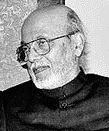
Spotify
A Comment on Shikwa and Jawab e Shikwa of Allama Iqbal – Part 5 of 6
By Dr Nazeer Ahmed
Concord, CA

Taa Sar e Arsh Bhi InsaaN Ki Tag o Taaz Hai Kya?
Aa Gyi Khak Ki Chutki Ko Bhi Parwaaz Hai Kya?
(Jawab e Shikwa)
Has the wayward reach of the human reached even the gates of the Exalted Throne?
Astonishing! Has a speck of dust acquired such a capacity to soar?
So close yet so far. God is so close to the human and yet He is so far. The Qur’an affirms that God is closer to the human than his own jugular vein. But it also affirms: “O humankind! You are toiling, painfully toiling, and you shall meet Him”. Man was in the heavenly presence but was ejected, in accordance with God’s plan, and was ordained to seek Him in the matrix of human history. The Sufi Shaikhs have said in their esoteric language that there are seventy veils between man and God and Tasawwuf is the Kashaf (unveiling) of these veils to witness His Jalal and Jamal (majesty and beauty).
Iqbal’s flight to the gates of the heavenly throne was astonishing. Very few in Islamic history dared to tread the domain where angels fear to tread. Fewer yet had the audacity to address God in the first person with a lyre and a complaint. As a well-known poet, Shakeel Badaywani wrote: “Allah To Sab Ki Sunta Hai, Jur’at Hai Shakeel Apni Apni; Hali Ne ZubaN Se Kuch Na Kaha, Iqbal Shikayat Kar Baithay” (God hears every petitioner, it is all up to the individual’s courage; Haali (a well known Urdu poet) kept his silence, but Iqbal went ahead and lodged his complaint).
There are innumerable ladders of ascent to the heavenly presence. The paths are diverse, but the destination is the same. To appreciate Iqbal’s audacity and his poetic temerity, we present here a summary description of one such ladder, outlined by the ninth-century sage, Imam Tirmidhi (d 892 CE). Tirmidhi’s approach is disciplined, methodical, and consistent with the methodology of Usuli ulema who were also consummate masters of Tasawwuf. We have modified the Tirmidhi approach and have added the last step of Shuhood (witness). This addition is consistent with the teachings of later Shuyukh such as Shaikh Ahmed Sirhindi (d 1624) of the Punjab. The modified ladder consists of ten steps, which repeat, making it an infinite helix, rising from the mundane earthly existence of the human to the Exalted Throne.
Step 1. Shariah (Observance of Divine Law)
The first step of the ladder is trust in Allah and obedience to his commandments. Shariah is the immutable Law of God which governs all creation. It embraces not just the world of man but all creation in the cosmos. Galaxies are born and die. That is Shariah. The stars traverse the heavens in prescribed paths and ultimately die. That is Shariah. The sun rises from the East. That is Shariah. As applied to the human, it embraces the commandments and guidance from God Almighty so that the human can discharge his responsibilities as his Khalifa or deputy on earth. It includes prayer, charity, fasting, and service to fellow man. It clarifies what Allah loves and what He does not love. For instance, Allah loves those who trust Him, adore Him, worship Him, who purify their souls, who are righteous and perform beautiful deeds, who are grateful and merciful, who honor their contracts and stand up for justice. Similarly, Allah does not love those who are ungrateful, who are unjust, who spread fasad (division and tumult) in their communities, who violate their contracts, and are extreme in their conduct.
Step 2. Iman (Certainty of Faith)
Iman is the second step of the ladder. It is not just belief; it is certainty of faith. Anyone can believe but only a Momin has certainty of faith. As a seeker observes the commandments of Allah, his heart softens to His presence and the certainty of faith increases in his heart.
Step 3. Ehsan
Ehsan comes from the root word h-s-n and has its origin in Asma ul Husna, the most beautiful names of Allah. As a Hadees e Qudsi explains, it means to worship and serve Allah as if you see Him and if you don’t see Him, to be aware that He sees you. In other words, Ehsan puts a lens of godliness on one’s vision. Ehsan also means benevolence, beauty and excellence. A Mohsin serves for the love of Allah without the expectation of a favor in return. His imprint is felt not just in human affairs but in works of art, architecture, literature, poetry, music and public affairs.
Step 4. Irfan (Knowledge and Comprehension)
Irfan comes the root word ain, ray, fey (a’,r,f). The first letter stands of I’lm (knowledge). The second letter stands for ru’ya (to see). The third letter connotes Fahima (comprehension). An Arif is one who acquires knowledge of his inner Self, comprehends it and sees the presence of God’s jamal and jalal (beauty and grandeur) in his heart. Irfan is a gift from Allah. He gives it to whom He pleases. It is the first station of the Awliya, those who are seekers of Allah’s pleasure and are close to His presence.
Step 5. Muhibba (Love)
Love is a jewel from the treasure house of Divine compassion. It is gift of the heavens to all creation. It is what keeps the cosmos afloat. As the seeker advances on the path of Irfan, the love of He who is the source of Irfan penetrates the heart. Love of Allah is a heavy burden. It was this love that goaded the human to accept the divine Trust. It is the elixir whose intoxication propels the soul to keep moving forward towards the heavenly Throne.
Step 6. Haiba (Awe and Wonder)
As the pilgrim moves on, driven by his love of Allah, he is awed by the majesty of His creation and the beauty of His works. He learns to say, Subhanallah, and keeps moving.
Step 7. Khushu (Devout Concentration)
Closeness to Allah brings on Khushwa, which means to be completely focused on Divine presence. It is an attribute of the state of prayer.
Step 8. Faqr (Humility)
As the seeker approaches the Divine throne, he becomes conscious of his utter dependence on Allah. The existence, knowledge, power and essence of the seeker are all a gift from Divine compassion. By himself, he owns nothing. He is a Faqir or a mendicant in the Divine court.
Step 9. Fana (Annihilation)
So overwhelmed is the seeker by proximity to heavenly power, that his wujud (existence) becomes extinct. This is the stage when the seeker attains the state of annihilation. The contingent existence of the mendicant is destroyed in the Reality of Divine Essence.
Step 10. Shuhood (Witness)
When he reawakens, the pilgrims is in a state of Shuhood. He becomes a witness to God’s love, mercy, compassion, creation, beauty, power, and omnipresence. In other words, the pilgrim himself e=becomes a vehicle for God’s work on earth. Whichever direction he looks, he sees the presence of Allah. It is from such a state that Abu Bakr Siddique I said: I see nothing unless I first see Allah. The meaning is that the human has now been anointed with the robe of taqwa and muraqaba. He has put on a heavenly lens and is in complete sync with the wavelengths of Allah.
This is not the end of the journey but the beginning of the next helix which starts anew with observance of the Shariah. At this second helix, the seeker is gifted with a reinforced faith and is endowed with deeper insights into the subtleties of heavenly works.
This was the ladder of the Usuli ulema. Allama Iqbal takes a different route, that of the illumination. In this path, the driver is not the mind-body and the Shariah but it is the heart and Ishq e haqeeqi (love of God). It is the path followed by the likes of Shaikh Shihabuddin Suhrawardy (d 1235) of Baghdad, Mevlana Rumi (d 1273) of Konya and Bulle Shah (d 1757) of Lahore. Rumi said: “Your heart knows the way; run in that direction”. Bulle Shah said: “Who is this Bulle Shah; Bulle! I know not who I am”. Iqbal was an avowed admirer of Rumi. It was on the wings of love that he penetrated the heavens and made his wayward presence felt near the Exalted Throne so much so that the moon, the stars and the galaxies were in wonderment:
Ishq Tha Fitna Gar o Sarkash o Chalaak Mera
AasmaN Cheer Gaya Nala e Bey-baak Mera (Jawab e Shikwa)
My love was disruptive, wayward and ingenious,
It cleft open the heavens for my audacious lyre.
(Continued next week)
(The author is Director, World Organization for Resource Development and Education, Washington, DC; Director, American Institute of Islamic History and Culture, CA; Member, State Knowledge Commission, Bangalore; and Chairman, Delixus Group)

